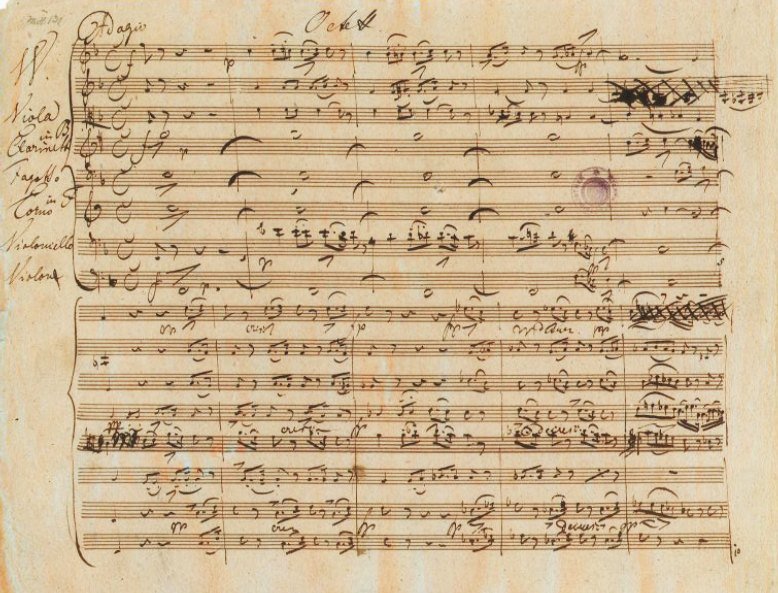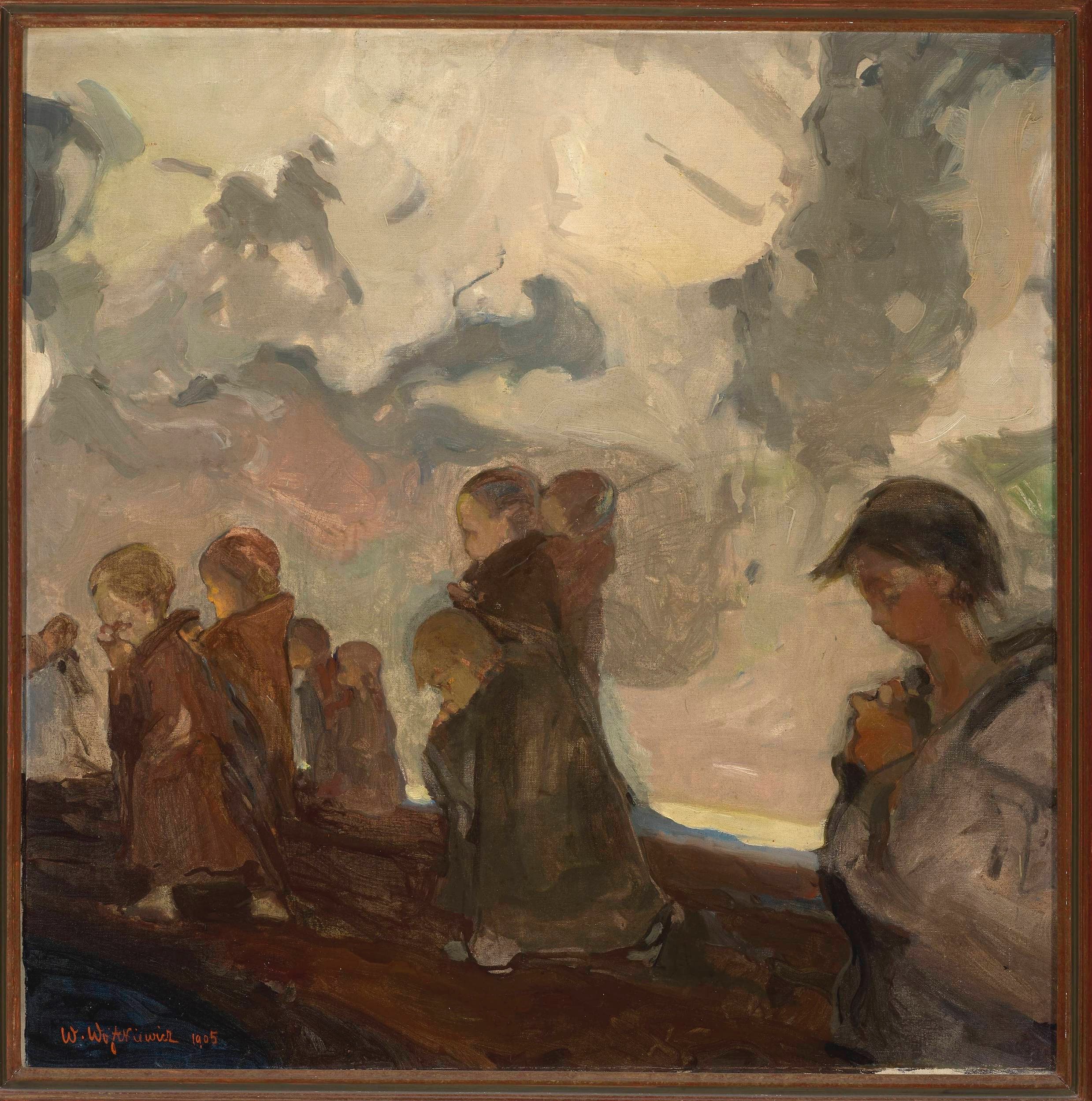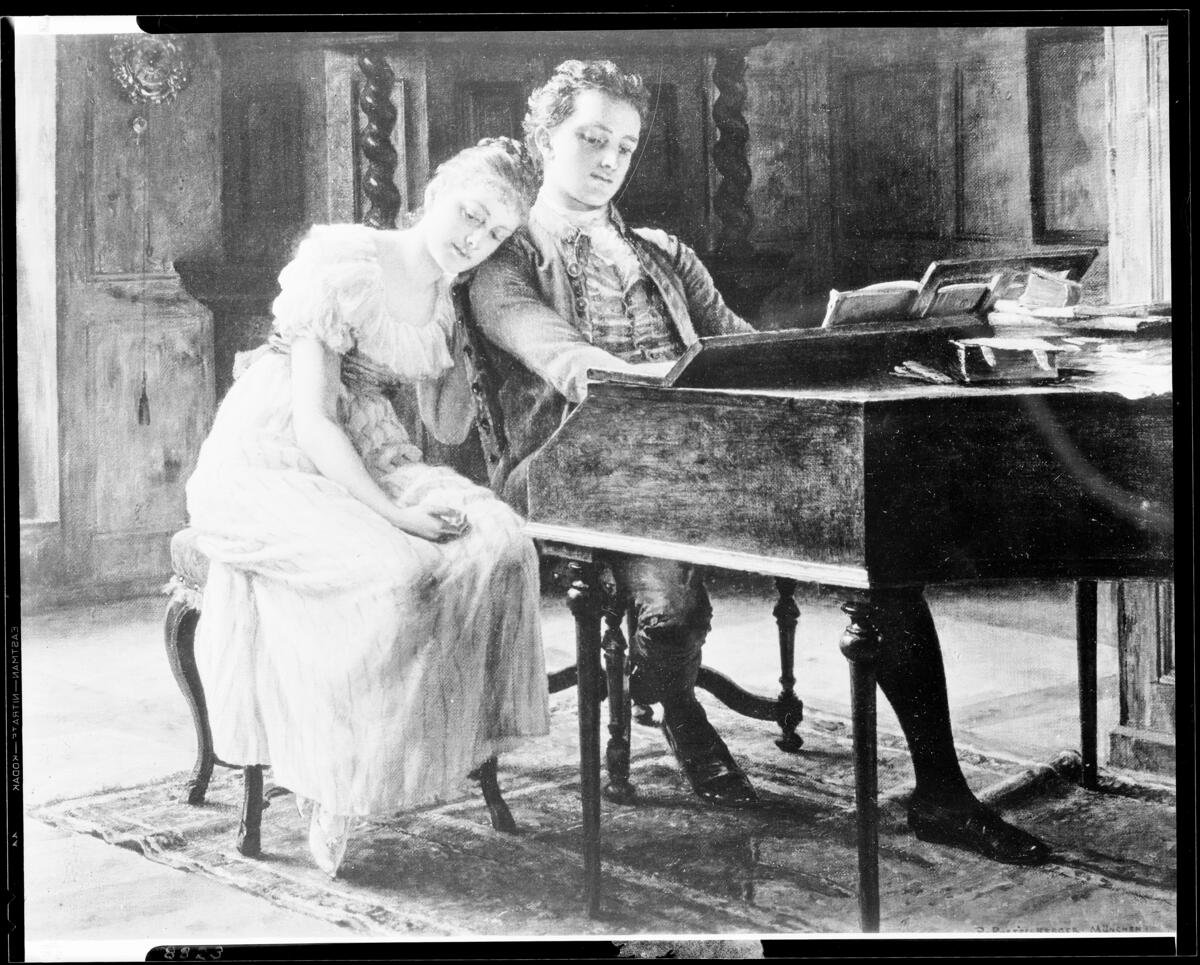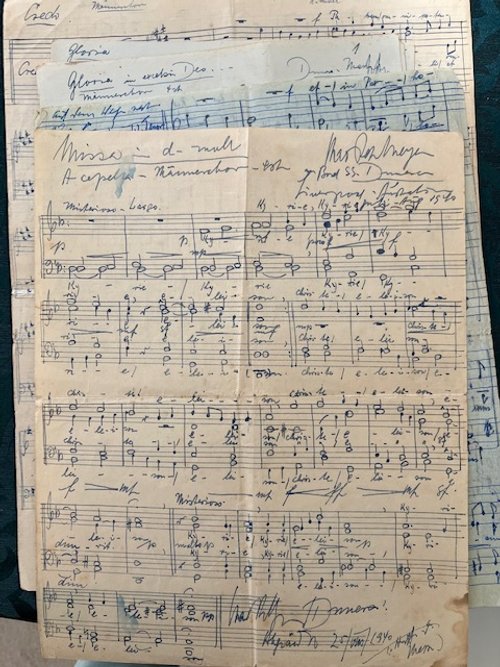What’s On
Past Events

CIMF: Dunera Mass
The re-enactment of a concert that took place in Hay, NSW, in April 6 1941.
On 10 July 1940, 2,546 men, ranging in age from 16 to 66, were herded aboard the Hired Military Transport Dunera at Liverpool, England and transported to Australia. Most were German or Austrian, and most were Jewish. Many had fled to Britain in the 1930s to escape Hitler’s Reich.
After 57 days of voyage in appalling conditions the Dunera reached Australia. It made three stops: first at Fremantle, WA, although no passengers disembarked; then at Melbourne where some internees disembarked to be sent to an internment camp in Tatura, Victoria; and finally, on September 6, 1940, the Dunera entered Sydney Harbour, where the remaining passengers disembarked and were sent to an internment camp in Hay, NSW.
Oswald von Wolkenstein, later known as ‘Ossie’ was one of the youngest of the Dunera Boys. Many years later he passed on a large folder of music written by Max-Peter Meyer specifically for the boys/men on the ship. The pieces were performed in the camp in Hay one year later. It includes a Mass, a Psalm setting and a piano quartet.
Artists
Luminescence Chamber Singers
Oriana Chorale
with narrator and three young artists

CIMF: Magic Eight
Schubert’s monumental Octet from 1824, sumptuously laid out over six movements, ingeniously combines five string players with three winds. This is chamber music on a big scale, bringing together the Quatour Van Kuijk with four prominent Australians.
Igor Stravinsky’s classic Octet for wind instruments, boasting two bassoons, came to the composer in a dream. As we celebrate its 100th birthday in 2023, we might chuckle at the utter absence of dreaminess. This octet prattles and prances with the best of them.
Between these two classic pillars, a modern masterpiece by Danish composer Per Nørgård is sung by the eight voices of Luminescence Chamber Singers. Wie ein Kind (Like a Child), conveys innocence as much as sophistication in settings of poetry by Adolf Wölfli and Rainer Maria Rilke.
PROGRAMME
Igor Stravinsky, Octet
Per Nörgard, Wie ein Kind
-interval-
Franz Schubert, Octet
ARTISTS
Quatour Van Kuijk
Sally Walker, flute
Oliver Shermacher, clarinet
Members of the Golden Gate Brass
Luminescence Chamber Singers

CIMF: The Children's Crusade
Power to the children! The story of 55 children orphaned at the outbreak of war in Poland in 1939, traversing the snow together, battling hunger and scenes of clamour and conflict as they search for a land where peace reigns. Triggered by one of Berthold Brecht’s most poignant poems, Britten’s pacifist manifesto is a stark reminder of the impact of war on our children. Its message is sung by children: Canberra’s own Luminescence Children’s Choir.
The stories and legends of children joining the theatre of war go back to the times of the Crusades. Most folktales and fairy tales go back just as many centuries and were enriched by the imagination of generations. Charles Perrault’s collection of 1697 contains many of most popular fairy tales, from Sleeping Beauty to Red Riding Hood. They inspired Ravel to write one of his most magical scores.
The concert finishes with a recent rendition of a touching letter written by Sam Weiss’ great-grandmother to her little girl Nelly, as they were leaving Berlin in 1936.
PROGRAMME
Maurice Ravel, Ma mère l’Oye (Mother Goose Suite) (1910)
-interval-
Berthold Brecht, The Children’s Crusade (1939)
Benjamin Britten, The Children’s Crusade, based on B. Brecht (1969)
Sam Weiss, Deine Mami (2021)
ARTISTS
Luminescence Children’s Choir, directed by AJ America
Stephanie and Edward Neeman, piano
Veronica Milroy, organ
Veronica Bailey, percussion

CIMF: Of Fairies and Fools
Enter a world of wonder in this evening concert inspired by rustic folk tales and elflike fantasy.
Grimm’s Fairy Tales hit the bookshops in 1812, and by the time H.C. Andersen was ready to publish his own fairy tales in the 1830s, a new literary genre was born. Robert Schumann followed suit with several instrumental works, as reflected in this late clarinet trio. Dvořák found different reasons to delve into his country’s folklore. It inspired major operas, as well as the very charming yet rarely performed Moravian Duets.
Janáček drew on the Czech folk traditions with even greater zeal. From the nuptials of the beetroot to the comic picture of a cow in the knacker’s yard, the musical miniatures of Říkadla (Nursery Rhymes) arguably are some of his most playful and catchy creations. Equally upbeat and almost clown-like is Elena Kats-Chernin’s Village Idiot, conjuring the wry image of a fool who in a world of madness dares to speak a clearer truth.
PROGRAMME
Robert Schumann, Märchenerzählungen op 132 (1853)
Antonín Dvořák, Moravian Duets (1876)
-interval-
Leoš Janáček, Říkadla (Nursery Rhymes) (1924)
Elena Kats-Chernin, Village Idiot (2006)
ARTISTS
James Wannan, viola
Oliver Shermacher, clarinet
Susannah Lawergren, soprano
Anna Fraser, soprano
Roland Peelman, piano
Ronan Apcar, piano/keyboard
Theo Carbo, electric guitar
Luminescence Chamber Singers
Alma Moodie Quartet

CIMF: Sibling Revelry
Canberra International Music Festival
The history of music is full of talented siblings.
We may never know what happened to Bach’s daughters, and we know little of what became of Mozart’s prodigiously talented sister Nannerl once she disappeared into married domesticity. But we do know that Fanny Mendelssohn was as gifted a musician as her brother Felix and that their personal bond remained equally strong until the end. It is Fanny’s untimely death in 1848 that prompted the dramatic outpouring of Felix’s string quartet op 80, his sixth and last.
The fate of the sisters Boulanger is well documented. The elder of the two, Nadia, living well into her nineties taught composers from Gershwin to Glass, whereas her younger sister Lili died at the age of 24, her creative potential largely unfulfilled.
Closer to home, the Wesley-Smith twins, Peter and Martin, with a genetically shared knack for words and wit, used Lewis Carroll’s double persona as a source of inspiration. They left us countless songs and music theatre works such as Boojum!, first performed at the 1984 Adelaide Festival in front of the Queen, or the searingly satiric Doublethink. Brother Jack is Martin’s four-hand piano take on the old French round ‘Frère Jacques’.
Flora and Theo Carbo, two young musicians out of the Melbourne jazz scene, surprised us all at the 2022 festival. They are jointly creating a new quartet for this sibling occasion.
PROGRAMME
Fanny Hensel-Mendelssohn, Four Songs op 8
Felix Mendelssohn-Bartholdy, String Quartet op 80
-Interval-
Nadia and Lili Boulanger, Two Songs
Martin Wesley-Smith, Brother Jack
Martin Wesley-Smith, Three Songs from Boojum!
Flora and Theo Carbo, new work (WP)
ARTISTS
Quatuor Van Kuijk
Edward and Stephanie Neeman, piano
Susannah Lawergren, soprano
Anna Fraser, soprano
Luminescence Chamber Singers
Roland Peelman, piano
Theo Carbo, electric guitar
Flora Carbo, saxophone
Katie Yap, viola

Choral Opposites
The world’s richest singing traditions somehow emerged around the outer edges of our planet. Between the vocal wonders of Northern Lights and the ancient sounds of the Southern continent, mysterious pathways can be drawn and redrawn. Some of Canberra’s most prominent vocal groups join forces in a choral event reaching across the globe in song.
Program includes music by Sarah Hopkins, Gillian Whitehead, Anna Thorwaldsdottir, Brenda Gifford (WP), and new commissioned work by Ella Macens (WP).
Artists
Luminescence Chamber Singers
William Barton, didgeridoo
Sally Walker, flute
Oriana Chorale
Kompactus Youth Choir

The Great Divide
Presented by the Canberra International Music Festival
The expeditions of Colombus and Vasco da Gama altered the map of the world for once and all. In order to keep some order, the Pope had to draw a straight line 370 leagues beyond the Cape Verde Islands, north to south, pole to pole. This artificial border from 1494 designated the ‘West’ to Spain and the ‘East’ to Portugal. Centuries later, in the aftermath of WWII, our much expanded world was held in precarious balance between the US and the USSR.
This concert features four musical realms. Spain’s medieval cantigas, earthy and seductive still today, contrast with the sumptuous polyphony of Portugal’s Golden Age. Steve Reich’s New York eighties vibe provides the perfect foil for Shostakovich’s sixth quartet, a masterpiece of Soviet optimism post-Stalin.
Artists
Luminescence Chamber Singers
Orava String Quartet
Jason Nobel, Clarinet
Programme
Cantigas de Santa Maria (Spain). ca 15’
Manuel Cardoso and Dom Pedro de Cristo (Portugal), motets
INTERVAL
Steve Reich, New York Counterpoint
Dimitri Shostakovich, String Quartet nr 6

CIMF @ Belco
Canberra International Music Festival returns to Belconnen with a world of music for all tastes: anything from Balinese gamelan to Persian music or the contemporary riffs of Ike (from) Pluto. Local groups mingle with visiting artists from across Australia. First Nations artists set the tone, including the extraordinary Māori performer Horomona Horo.
Luminescence Children’s Choir will perform in the Generator Gallery at 5.30pm.
This is a free performance.
























